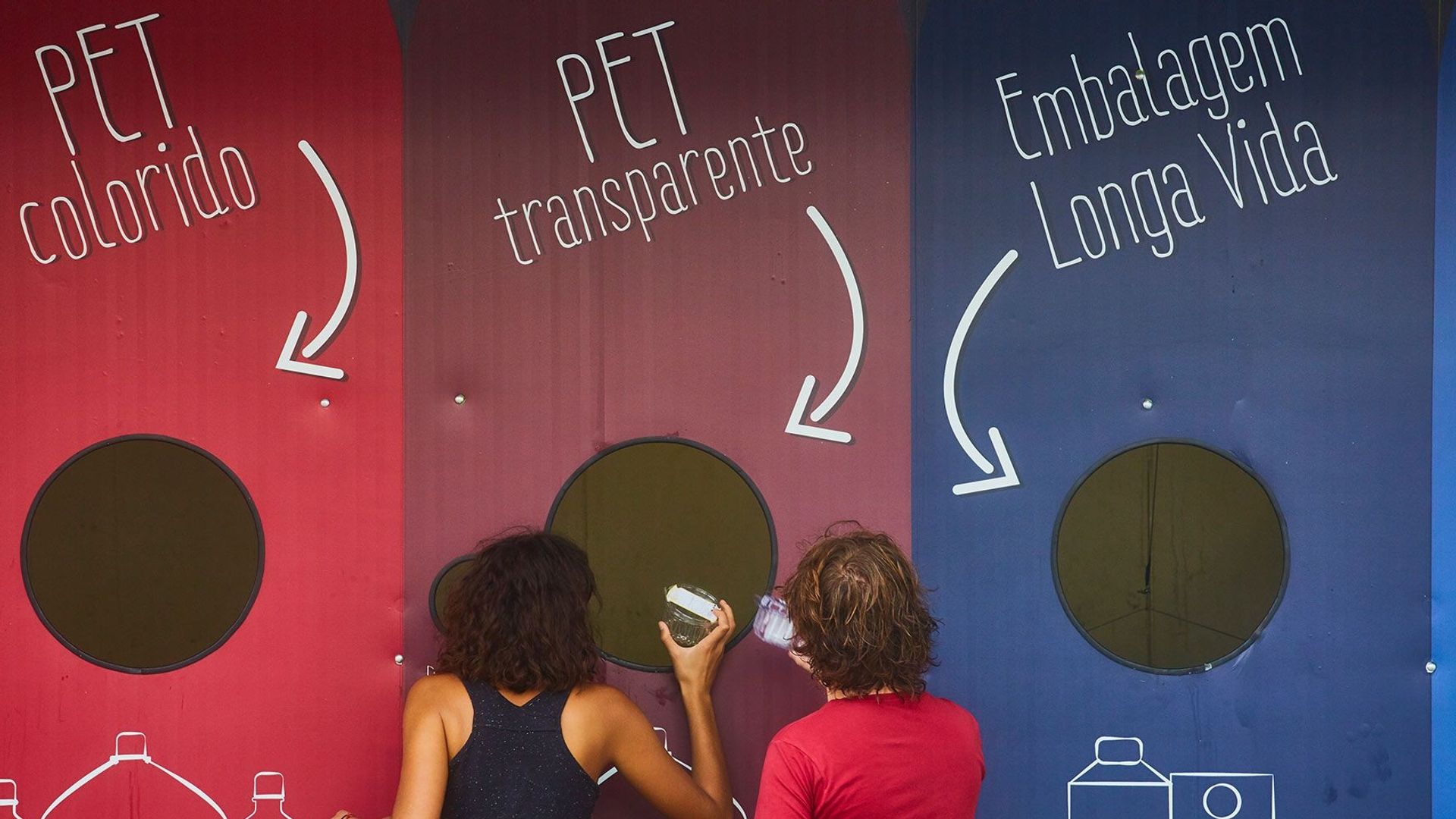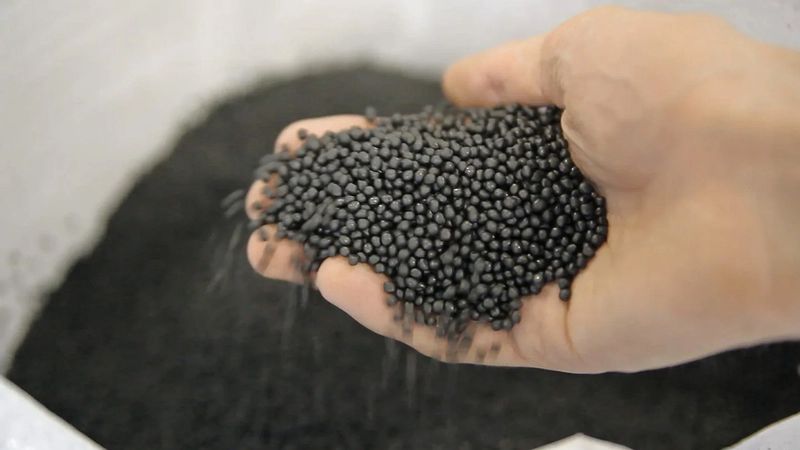Unilever 2021
There’s a lot of plastic pollution in the environment, some with our name on it – and that’s not okay with us. We’re completely rethinking the role of plastic in our business.
Plastic is very valuable. It helps us get our products to consumers safely and efficiently. It’s often the lowest carbon footprint option compared to other materials. Yet far too much plastic ends up in our environment. Global research has shown the flow of plastic into the ocean each year could triple by 2040. This has to stop.
Our approach to products and packaging is changing. Science tells us that most of the solutions we need exist today, but we need to fix the broken plastic system to protect our oceans and marine ecosystems. We need new ways for consumers to easily access everyday products with less plastic waste. We want to keep plastic in use for as long as possible in a circular loop system by collecting, processing and repeatedly reusing it.
We’ve set ambitious targets to reduce the total amount of virgin plastic we use, to ramp up the use of recycled plastic and to only use reusable, recyclable or compostable plastic packaging. We’re also supporting collection and processing infrastructure.
Our plastic targets
By 2025 we will:
- Halve the amount of virgin plastic we use in our packaging and achieve an absolute reduction of more than 100,000 tonnes in plastic use
- Help collect and process more plastic packaging than we sell
- Ensure that 100% of our plastic packaging is designed to be fully reusable, recyclable or compostable
- Increase the use of post-consumer recycled plastic material in our packaging to at least 25%.
The Covid-19 pandemic has brought new challenges in tackling plastic pollution. These include the availability of certain materials, inability to test new materials with our suppliers and in our factories, and closure of sorting and recycling centres in some markets. The decreasing price of oil also makes it harder for recycled plastic to compete against lower cost virgin materials too. Yet we remain as committed as ever to shifting to a circular economy for plastics.
Despite challenging conditions, we must not turn our backs on plastic pollution. It is vital for us, and for the rest of the industry, to stay the course, cut the amount of plastic we use and rapidly transition to a circular economy.
Alan Jope, our CEO
Our mantra and framework is: Less plastic. Better plastic. No plastic.
This guides everything we do:
Less plastic: cutting down how much we use in the first place
Better plastic: switching to recycled content, and making sure our products are recyclable
No plastic: using refill stations to cut out new plastic completely and switching to alternative materials such as paper, glass or aluminium.
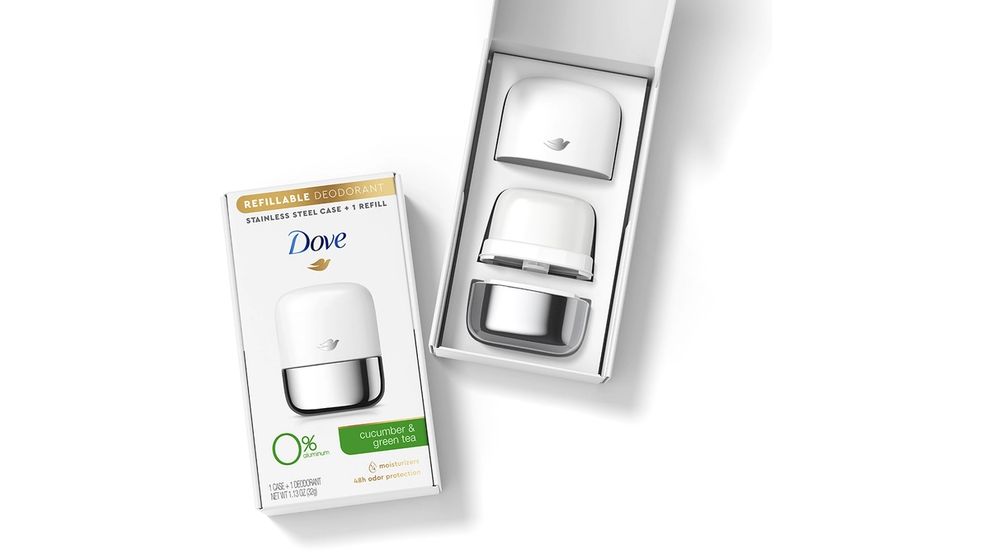
Dove’s beauty refillution
Buy once, refill for life. Dove has started a deodorant revolution with its first refillable stainless steel case. The refills use far less plastic, and the small amount used is 98% recycled. With a lifetime guarantee on the case, it’s designed to be bought once and used for life.
Better plastic
Whenever we use plastic, we make sure we’re choosing better options – that means recycled and recyclable plastics. We estimate that around half of our plastic packaging is reusable, recyclable or compostable so far.
We’re keeping plastics in the system, and out of the environment, by buying post-consumer recycled (PCR) content. We’re ramping up how much recycled plastic we use and around 11% of our plastics footprint is from PCR today. This puts us on track to achieve 25% by 2025.

11% PCRPost-consumer recycled plastics makes up around 11% of our plastic use
For instance, our Dove beauty brand uses 100% recycled plastic bottles in North America and Europe. Our Love Beauty and Planet hair and skin care brand uses 100% recycled polyethylene terephthalate (rPET) in all bottles across its ranges, and is working to incorporate this into bottle caps and pumps.
There are plenty of technical challenges that we’re tackling in our better plastic journey. We’re developing new ways of working, including chemical recycling for plastics which are hardest to recycle such as multi-layered and flexible packaging.
Recycled plastic packaging also has to meet the same technical and safety standards as virgin plastic – standards which are higher for food packaging. Our Magnum ice cream brand worked with a supplier to overcome this challenge and launch recycled plastic ice cream tubs.
In our Home Care division, our dilutable laundry detergents in Brazil, Argentina and Uruguay are made with recycled plastic and cost less than undiluted detergents.
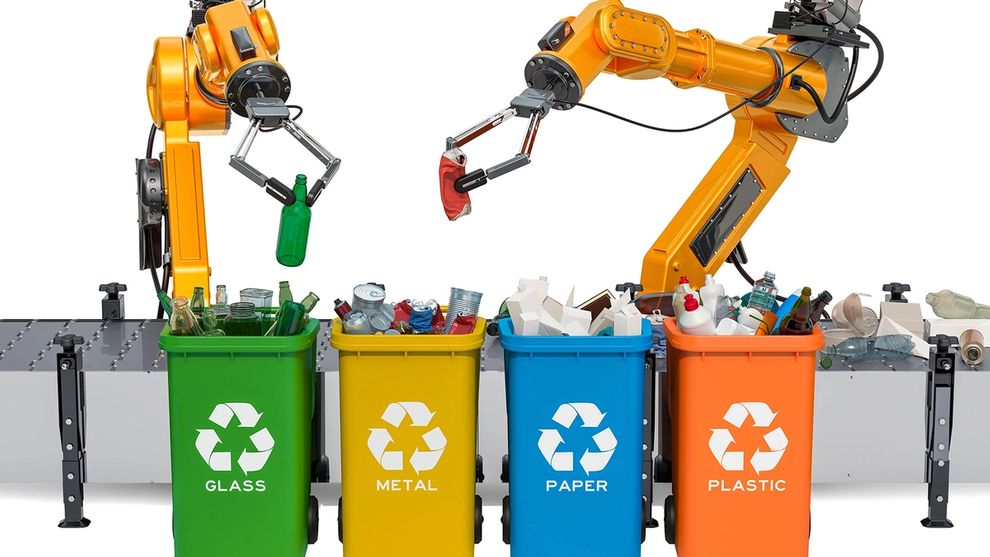
Using smart AI to boost recycling rates
Recycling systems can be confusing and they’re different wherever you are in the world. Together with eCommerce giant, Alibaba, we’ve created recycling machines that use artificial intelligence (AI) to automatically identify and sort plastics for recycling in China.
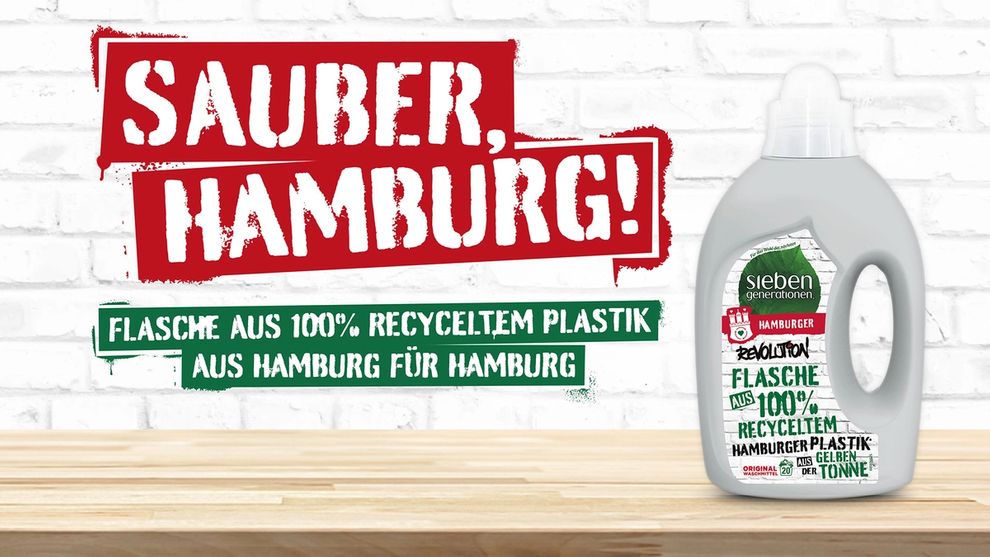
Closing the plastics loop with Seventh Generation
Residents of the city of Hamburg in Germany have a special Seventh Generation laundry detergent bottle on their shop shelves: one made from plastic they’ve recycled locally in their city. Plastic collected from Hamburg’s kerbside recycling is transformed by local waste partner, Veolia, into recycled plastic pellets used to make new detergent bottles.
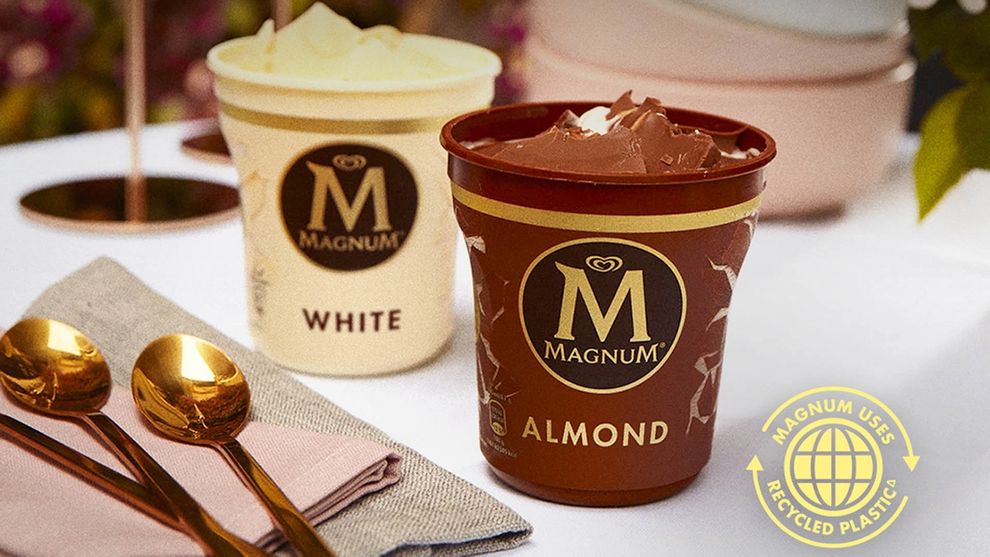
A world-first: Magnum’s recycled plastic ice cream tubs
Magnum collaborated with supplier SABIC, to develop recycled plastic ice cream tubs in Europe that are food-grade and able to withstand freezing temperatures. This new technology uses low quality, mixed plastic waste that wouldn’t otherwise be recycled. Magnum’s new tubs – more than 7 million of them – are now going global.
Collecting and processing plastic
We can’t reach our ‘better plastic’ goals unless there’s enough high-quality post-consumer recycled materials available. There’s no shortage of plastic in the system – but there are some big challenges. Turning plastic waste and pollution into usable material relies on local collection and sorting facilities. There also needs to be technical innovation and new solutions to make collecting and reprocessing materials commercially viable.
We’re working with partners in multiple countries to overcome these challenges. We have roadmaps in place with partners to help collect and process plastic packaging in Brazil, India, Indonesia, Philippines, Russia, South Africa, Thailand, UK and US. This includes direct investments and partnerships in waste collection and processing, building capacity by buying recycled plastics, and supporting extended producer-responsibility schemes in which we directly pay for the collection of our packaging.
We’re developing a technology-led solution in Indonesia, where we’re supporting urban communities to develop systems to collect and sell waste. A digital platform called ‘Google My Business’ enables consumers to find their nearest waste banks via Google Maps.
We also need to consider the impact of the plastic system on people’s livelihoods. In some markets people make a living by picking materials out of dumped rubbish. We want to help these workers be part of a safe, formal recycling system. In India, for example, we’re working with the United Nations Development Programme (UNDP) to protect the livelihoods of informal waste collectors, who help segregate, collect and recycle packaging.
The partnership has reached more than 33,000 households and collected 2,500 tonnes of plastic waste so far, and will scale up to include more households in the coming years. We’re using what we’ve learned and replicating our work with UNDP with other partners in countries such as Pakistan.
Finding new solutions for flexible packaging
Flexible packaging, such as sachets and pouches for our Knorr products, is particularly difficult to improve. We want to reduce our dependence on multi-layered sachets and improve their collection and recyclability, particularly in our markets across Asia. We’re learning there are no easy solutions. It’s a technical challenge, along with different local regulations on collection, sorting and recycling.
Some of the solutions we’re exploring include business model innovations to reuse packaging and increase collection, and material innovations such as biodegradable solutions. For example, in Brazil, our Surf laundry brand is reusing materials from pouches to make new packs. We’re also exploring how we can make sachets from single materials instead of multiple layers, making them easier to recycle.
In Indonesia we’re piloting new technology to recycle multi-layered sachets. In Europe we’re members of CEFLEX, a consortium aiming to make flexible packaging in Europe circular by 2025. We contributed to an industry roadmap and guidelines exploring solutions.
We are committed to finding a solution for flexible packaging and we’re accelerating our efforts in this area.
Less plastic
Sometimes a complete rethink of how we design and package products is the best way to reduce plastic. Reducing the amount of material in a product by just a few grams can make a huge difference across an entire product range. Over the last decade we’ve already cut the weight of our packaging by a fifth through better and lighter designs.
We’re encouraging customers to think of bottles of our cleaning and laundry products as a ‘bottle for life’ – just like a ‘bag for life’ they might use for shopping. For instance, our Cif customers are encouraged to reuse their spray bottles and our OMO laundry customers can use their 3 litre bottles for life too.
Ultra-concentrated products help us give consumers the same products but with much less plastic and smaller packaging. Comfort’s ultra-concentrated laundry formulas offer a smaller dosage than any other product on the market. Our Love Beauty & Planet concentred shampoos and conditioners provide the same number of uses with half the plastic.
Our beauty brands are challenging our throw-away culture too. Dove has started a beauty ‘refillution’ with its first ever durable, stainless steel refillable deodorant caseOpens in new window which is designed to be used for life.
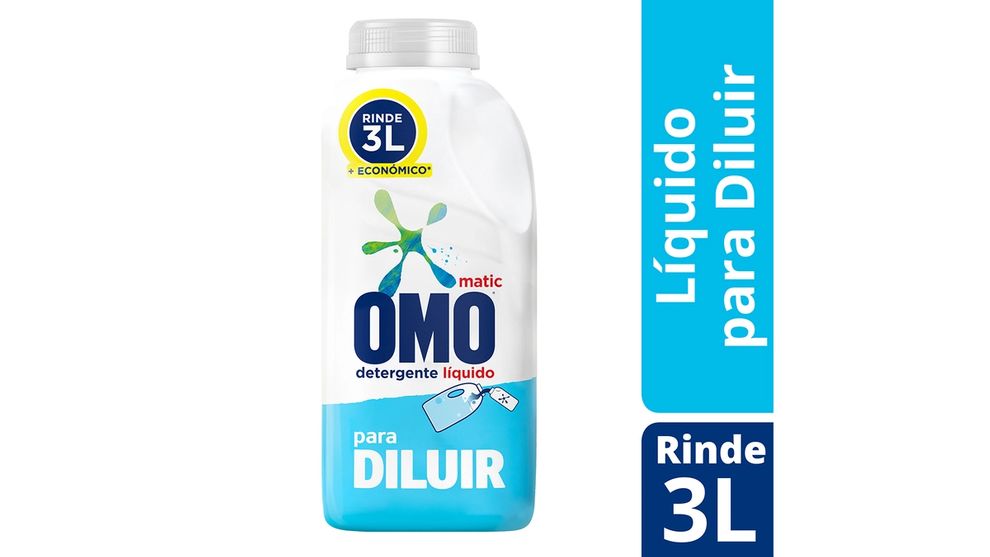
Less plastic: better value laundry liquid
Our OMO liquid laundry detergent has a new formula that’s six times as concentrated. OMO refill packs can be diluted with water to fill a 3 litre bottle. The refill pack is better value for consumers and it uses 72% less plastic. A third of our OMO 3 litre consumers in Brazil have already made the switch to refills.
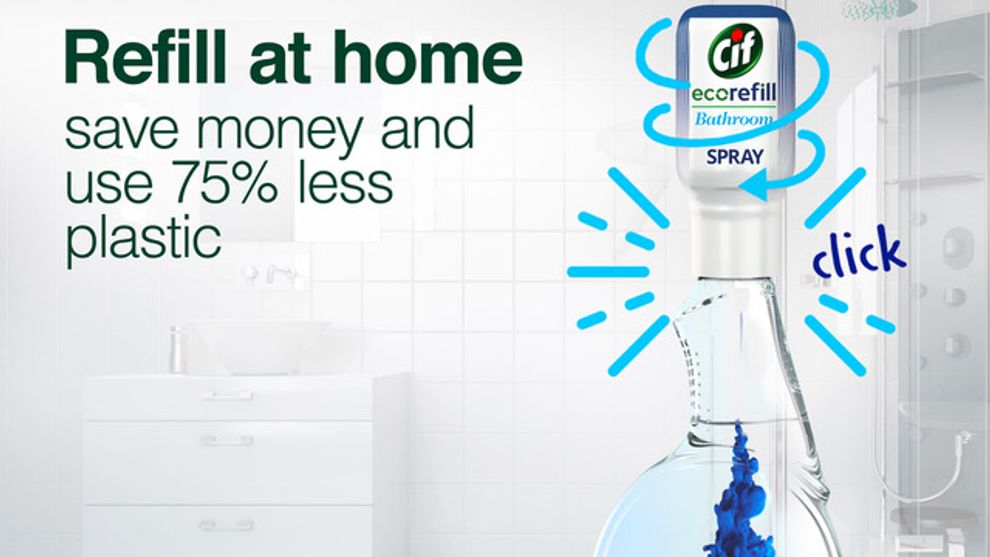
A bottle for life with Cif ecorefills
Shoppers can keep their Cif spray bottle and reuse it for life. Our ten times concentrated refill packs use 75% less plastic and attach to current Cif Power & Shine bottles. The ecorefill is 100% recyclable once the plastic sleeves are removed. We’re also increasing the recycled plastic content in the spray bottles too.
No plastic
We can’t stop plastic pollution unless we put less plastic into the system in the first place.
No plastic means rethinking how we design products, developing whole new business models, and new shopping experiences for our consumers. It also means switching out plastic for alternative options in both our products and packaging. It’s one of the most innovative parts of our strategy – and a key element of our commitment to halve our use of virgin plastic materials by 2025.
We need bold innovations that challenge existing designs, materials and business models. Our priority is to fundamentally rethink our approach and pave the way for new solutions such as reusable and refillable formats.
Richard Slater, our Chief R&D Officer
The reuse-refill revolution
We’re doing everything in our power to help bring about a refill-reuse revolution. We’re working on ways that shoppers can buy one container and refill it over and over again. Refills can be bought online or in a shop, or through in-store dispensing machines. A service could pick up empty containers, replenish them and deliver them back. Or people can return packaging at a store or drop-off point, as part of a deposit-return scheme.
We’ve learnt there is no one-size-fits-all solution. We’ve appointed dedicated in-house teams to build expertise, test, learn and refine different approaches. More of our brands are becoming available through refill stations, with pilot projects exploring how to make refilling our products easy, affordable and desirable. Together with major supermarkets we’re trialling refill projects in Colombia, France, Indonesia, the Philippines, Vietnam and the UK.
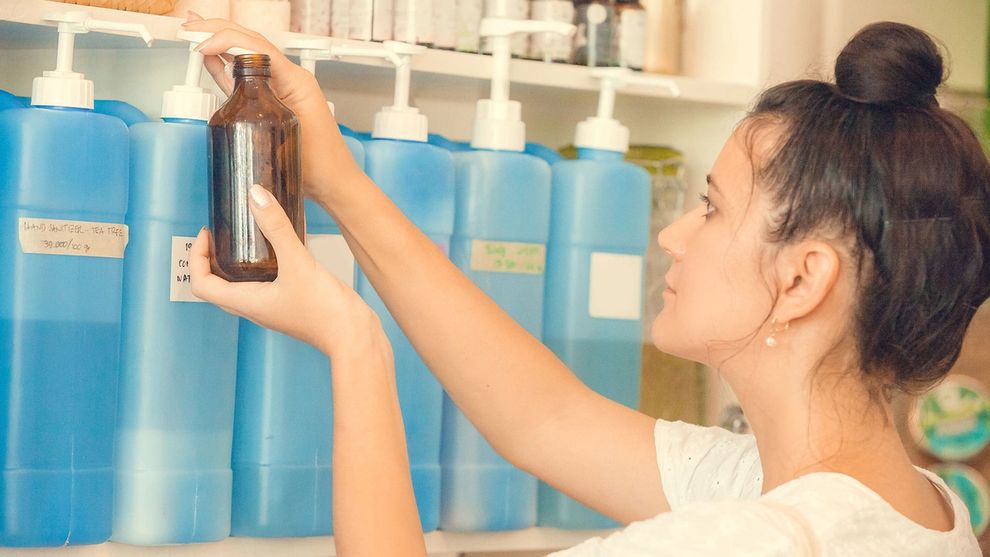
In-store refills in Colombia
We’ve launched our first refill pilot in Colombia at Graneco stores in Bogota. Shoppers buy a bottle of one of four home care brands, and they can refill it for less than the standard price of a new pack. The pilot has already led to an increase in sales.
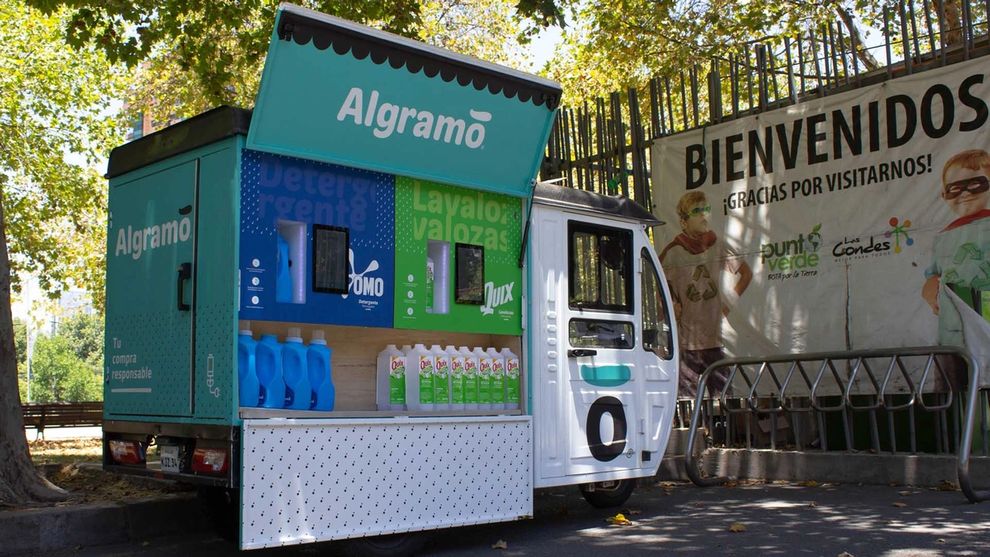
Home refills delivered by electric tricycle and an app
Using an app means a refill is one swipe away for customers in Chile. Together with a social enterprise, Algramo, customers can order cleaning or laundry product refills to be delivered to their door by electric tricycle. Customers dispense the amount they need into reusable containers, and make a cash-free payment for their order.
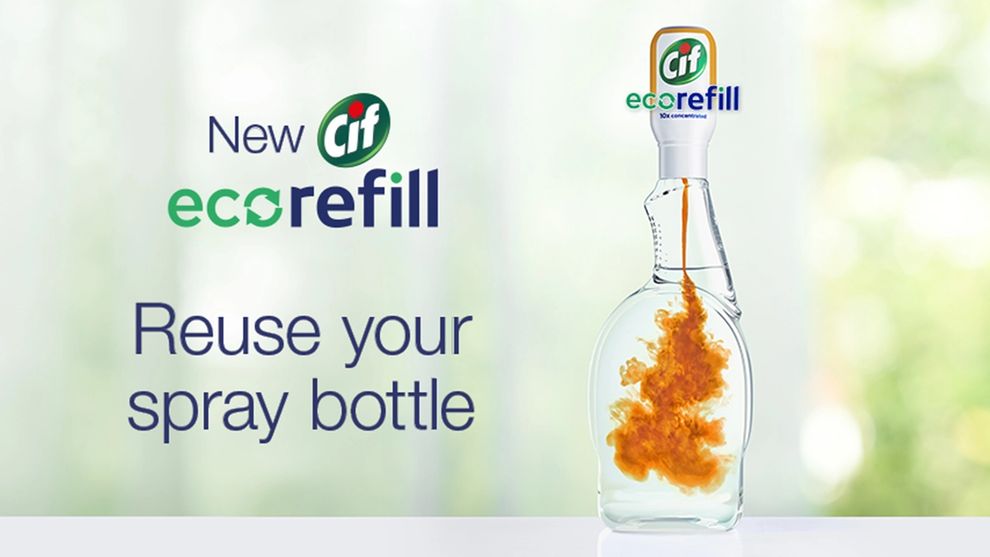
Major refill trial with seven brands in the UK & Ireland
In 2020 we launched our biggest refill trial to date in Europe with Asda supermarkets in the UK and Ireland. Seven Unilever brands, including Persil, PG Tips and Radox, are trialling their products across three refill formats – machines that dispense liquid products into refillable bottles, self-serve containers and refill-at-home products.
Our hope is that we can use our scale and reach to drive lasting change. We’re sharing the lessons that we’ve learnt along the way, with the aim of bringing everyone on board – including governments, retailers, manufacturers, delivery services, civil society organisations and, of course, consumers.
Plastic-free and biodegradable brand innovations
We’re finding ways to remove plastic entirely from some of our products and packaging. Brand new materials – and a return of familiar ones such as paper, glass or aluminium (provided we’re satisfied they don’t have a worse environmental footprint than the material they replace) – are options for a plastic-free future. There’s huge scope for innovation – and our brands are already at work.
Plastic-free packaging innovations include bamboo toothbrushes from Signal, recyclable glass soup bottles from Knorr and paper ice cream tubs from Carte D’Or. Seventh Generation also has a zero-plastic range on eCommerce channels in the US, using packaging made from steel. Dove’s single-bar soaps now come plastic-free.
We’re taking plastic out of our products too. Simple’s biodegradable facial cleansing wipes are made from sustainably sourced wood pulp and plant fibres.
We’re also finding biodegradable solutions for our food and beverage brands. Our PG Tips tea brand switched to 100% biodegradable tea bags, using a plant-based material to seal their pyramid-shaped bags instead of one derived from plastics.
Fixing the broken plastic system
The plastics problem is too big for us to solve alone. A movement to a circular economy approach for plastics requires system-level change, beyond our industry. That’s why we’re working with governments to support development of waste infrastructure. We want to make sure the systems our products flow into are robust – and ideally, circular. There are some big challenges – the selective collection of packaging waste, little or no waste infrastructure and limited investment in the waste industry.
We support ‘extended producer responsibility’ policies and schemes – in which we pay for the collection and processing of our packaging. We’re investing directly in waste collection, processing and capacity-building projects to recycle more plastics, and we’re partnering with hundreds of businesses and other organisations through various initiatives to bring about change.
What is ‘extended producer responsibility’?
Companies like ours that make products packaged in plastic – the ‘producers’ – should deal with the waste from used and discarded products. Governments use EPR schemes to make companies cut plastic packaging and use more recycled content, by charging them costs to collect and process packaging.
Partnering for a circular plastics economy
We’re long-term collaborators with the Ellen MacArthur FoundationOpens in new window and its New Plastics Economy initiativeOpens in new window, which sets clear targets to achieve a circular economy for plastic so that it never becomes waste or pollution.
We joined around 250 packaging producers, brands, retailers, recyclers, governments and NGOs in signing The New Plastics Economy Global CommitmentOpens in new window in 2018, which aims to eradicate plastic waste and pollution at source. Our CEO co-sponsors the Consumer Goods Forum Plastic Waste Coalition of Action, which brings together the biggest players in our industry to collaborate on progress towards the New Plastics Economy.
In Europe we’ve signed the European Plastics Pact – which brings together national governments, NGOs and business to accelerate progress towards the reuse and repurposing of plastic. This public–private coalition sees 15 governments and over 70 companies and organisations join forces in pledging to avoid plastic waste across their value chains. All participants have committed to hit four bold targets by 2025, and progress will be monitored and reported upon annually.
By committing to ambitious circular economy goals for plastic packaging, Unilever is contributing to tangible system change and sending a strong signal to the entire fast-moving consumer goods industry. Combining upstream measures on design and materials with post-use strategies demonstrates the system-wide approach that is required to turn the New Plastics Economy into reality.
Dame Ellen MacArthur
Eradicating ocean plastics
The ocean is no place for plastic. We’ve calling for a global UN treaty on plastic pollution, together with Danone, PepsiCo and The Coca-Cola Company, led by the Ellen MacArthur Foundation, WWF and Boston Consulting Group.
Together we want to see a global agreement with goals, binding targets and national action plans – just like the Paris Agreement on climate change – to eliminate plastic pollution from our oceans by 2040. Transformational change requires more than today’s voluntary commitments. We’ve outlined the business case for a UN treatyOpens in new window.
The ocean plastics problem is acute in South and South East Asia where both infrastructure and investment are limited. That’s why we’re contributing to The Ocean FundOpens in new window, managed by Circulate Capital. Together with other major consumer goods and beverage companies, collectively we are investing USD $100 million in waste collection, management and recycling infrastructure, initially in India and Indonesia.
